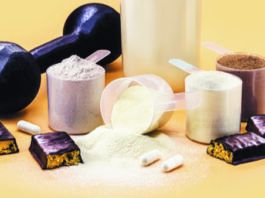Dieticians Endorse Food Over Pills
The American Dietetic Association says a nutritious diet, not pills, is the best way to promote health and reduce the risk of disease. In a new position statement, the dieticians group stated, The best nutrition-based strategy for promoting optimal health and reducing the risk of chronic disease is to wisely choose a wide variety of nutrient-rich foods.
Dont Jump to Conclusions on Multivitamin Heart-Attack Protection
I f you saw the headlines about a recent study-Multivitamins Shield from Heart Attack, Multivitamins Keep Heart Attack at Bay-you may be tempted to join the estimated 75 million Americans who take a daily multivitamin. But not so fast. Even the lead researcher on the new study, Susanne Rautiainen, MSc, of Swedens Karolinska Institute, cautions, The question of whether multivitamins are good for you still remains.
Low-Dose Aspirin Might Combat Colon Cancer
T aking low-dose aspirin-often recom- mended to protect your heart-may also reduce your odds of colon cancer. A team of researchers whod previously shown a link between high-dose aspirin and lower colon-cancer risk looked at fve trials totaling 16,488 participants taking lower doses, since long-term high-dose aspirin usage can have adverse bleeding effects. Over nearly 20 years of followup, the new analysis found that people assigned to low- dose aspirin regimens for six years were at one-quarter lower risk of colon cancer and one-third less likely to die of the disease.
Omega-3s vs. Gum Disease
The omega-3 fatty acids from fsh oil that protect your heart might also be good for your teeth and gums. A new study reports that relatively modest amounts of omega-3s in the diet were associated with signifcant decreases in risk of periodontitis (gum disease). Re- searchers looked at data on more than 9,000 US adults from national nutrition surveys. People consuming the most DHA, one of the principle omega-3 fatty acids found in fsh, were 22% less likely to suffer periodontitis. EPA, the other important fsh-oil omega-3, and linolenic acid, found in vegetable oils, were also associated with lower risk, but not as strongly. Although the study cant prove cause and effect, its possible that omega-3s might suppress the infammatory response that leads to gum disease. Such a dietary therapy, researchers said, might be a less expen- sive and safer method for the prevention and treatment of periodontitis.
Alpha-Carotene Linked to Lower Mortality Rates
A lpha-carotene, the often-overlooked cousin of more familiar beta-caro- tene, may help you live longer-and further explain the health benefts of eating vegetables and fruits. Researchers at the CDC, studying data on more than 15,000 adults from a national nutrition survey, report that people with the highest blood levels of alpha-carotene were 39% less likely to die from all causes over almost 14 years.
Exercise and Vitamin D Rated Best Bets for Preventing Falls
A new review of more than 50 clinical trials, designed to update prevention recommendations for physicians, fnds exercise and vitamin D supplements are the most effective ways to prevent falls in older adults. The report says exercise was associated with a 13% reduction in the risk of falling, while trials of vitamin D supplementa- tion saw a 17% reduction in falls. The review will be used to update the US Preventive Services Task Force (USPSTF) recommendations for strate- gies to prevent falls.
Mental Energy-Boosting Claims Put to the Test
Can foods, beverages or dietary supplements really increase your mental energy? Scientists at the Life Sciences Research Organization (LSRO) recently reported the results of a review of the scientific evidence for such claims regarding ginkgo biloba, ginseng, glucose and omega-3 polyunsaturated fatty acids. They defined mental energy as consisting of mood (transient feelings about the presence of fatigue or energy), motivation (determination and enthusiasm) and cognition (sustained attention and vigilance)
Zinc Benefits Nothing to Sneeze At
Zinc really might work to prevent the common cold and lessen the severity of symptoms, according to a new review, but the prevalence of side effects might make you think twice about taking it. Scientists searched for randomized, double-blind, placebo-controlled trials conducted since 1984
Surveying Doctors Supplement Choices
Do physicians take dietary supplements-and if so, which ones and why? A new survey conducted for the supplements-industry trade association the Council for Responsible Nutrition sought answers from 900 physicians, evenly divided among three specialties-cardiology, dermatology and orthopedics
Extra Vitamin E Found Safe Yet Ineffective; Debate Goes On
The good news from a new pooled analysis of 57 studies is that, despite some red flags from previous research, vitamin E supplements are safe and dont increase the risk of death. But neither do the once-highly touted supplements help you live longer, the review reports, despite hopes their antioxidant effects might fight chronic disease. Calling their meta-analysis the largest and most inclusive to date, scientists concluded in Current Aging Science that vitamin E supplementation cannot be endorsed as a means of reducing mortality




























